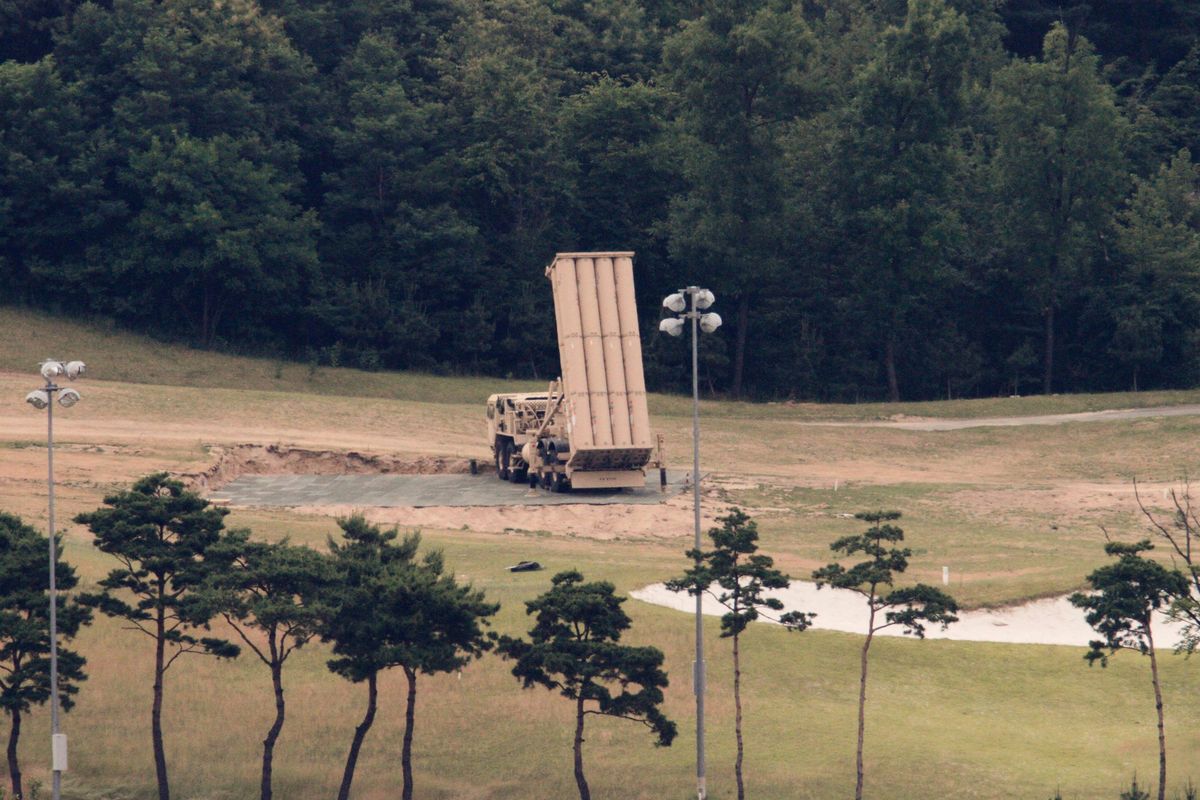China is unhappy with South Korea expanding its missile-defense system

A few minutes every morning is all you need.
Stay up to date on the world's Headlines and Human Stories. It's fun, it's factual, it's fluff-free.
North Korea has been expanding its nuclear program for a while, and, to counter it, the US has been rolling out something called the Terminal High-Altitude Area Defense (THAAD) missile-defense system in South Korea. This system is meant to detect if a missile gets launched and shoots it down. But China isn’t a huge fan of it, saying that its really wide radar system could allow for spying on Chinese missile systems. So back in 2017, the South Korean President at the time, Moon Jae-in, said he was going to stop rolling out the THAAD system to get on China’s good side.
But then, earlier this year, Yoon Suk Yeol was elected president in South Korea, and he just announced that deploying the THAAD system wasn’t negotiable, despite China’s concerns. Yoon has been pushing to move South Korea closer to the US, so this is, in part, a move to also make that happen.
The Chinese really aren’t happy that this expansion is happening, saying that Korea should uphold agreements made with the former president even in the new Yoon administration.
Key comments:
Korean Defense Minister Lee Jong-sup assured that the system can’t be used against China, telling reporters, “The current battery is not structured to play any role in US defenses but placed in a location where it can only defend the Korean peninsula."
“China attaches importance to this position of the ROK [Republic of Korea] government," Chinese Foreign Ministry spokesman Wang Wenbin said in a news briefing on Wednesday. “Based on the understanding between the two sides, China and the ROK were able to properly handle the THAAD issue. During yesterday’s meeting between the two foreign ministers, the two sides once again had an in-depth exchange of views on the THAAD issue, elaborated on their respective positions, and deepened mutual understanding. Both agreed to take each other’s legitimate concerns seriously and continue to prudently handle and properly manage this issue to make sure it does not become a stumbling block to the sound and steady growth of bilateral relations."
“Criticism or pressure on the ROK (South Korea) to abandon its self-defense is inappropriate," said US State Department deputy spokesperson Vedant Patel to reporters.




Comments ()